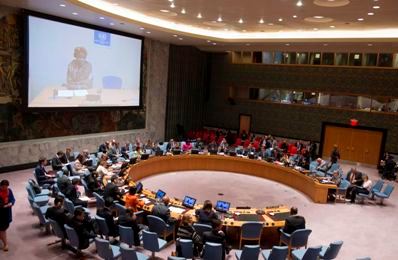UN Security Council backs regional efforts to revive South Sudan peace agreement
December 14, 2017 (NEW YORK) – The United Nations Security Council (UNSC) said Thursday said it remains deeply concerned over the situation in war-torn South Sudan and expressed strong support for a regional initiative aimed at rescuing its 2015 peace agreement.

But the Security Council, in a statement, said it is “deeply” concerned about the actions of all parties to the conflict that are perpetuating this, with 7.6 million people now in need of aid, four million displaced, and six million lacking enough food to feed themselves.
The Council also took note of the September 2017 mid-term report of the Joint Monitoring and Evaluation Commission (JMEC) and its findings that the parties to the conflict have failed to implement substantive elements of the 2015 peace agreement, which sought to end the fighting that broke out in December 2013.
The Council expressed its strong support for the regional bloc (IGAD) High-Level Revitalization Forum (HLRF), which was established to revitalize efforts to implement the 2015 peace agreement and that it looks forward to the convening of a fully inclusive forum and substantive progress on the initiative by the end of December.
IGAD is a regional mechanism in Eastern Africa consisting of Djibouti, Eritrea, Ethiopia, Kenya, Somalia, South Sudan, Sudan and Uganda.
The Council, in its statement, “strongly” urged all parties to engage constructively in the process to revitalize the 2015 peace agreement, underlining that no party should set pre-conditions for participation.
The 15-member Security Council noted with deep concern the continuing obstacles that hinder the delivery of vital lifesaving assistance to the South Sudanese people, condemning attacks on national and international humanitarian personnel and compounds.
The Council reiterated that perpetrators of violations of international humanitarian law and violations and abuses of human rights must be held accountable, to break the prevailing cycle of impunity.
(ST)
